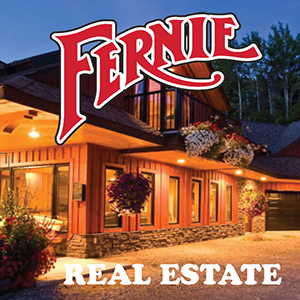The Vancouver-based Gaglardi family is known for owning Sandman Inn hotels and Denny’s restaurants, where you can work your way through something called a Grand Slam at 2 o’clock in the morning.
There is also “Flying Phil Gaglardi,” now deceased. He was the eccentric, 1960s era Highways Minister who had a penchant for driving fast and grabbing headlines. Today, he’s celebrated with a statue and major thoroughfare named after him.
Now, the family has entered into the formidable business of running the billion-dollar Revelstoke Mountain Resort, a name synonymous with vertical drops.
“When you come off Whistler you get sushi, and when you come off Revelstoke, you get dental work,” says long-time Vancouver skier Brent Cohen.
To capitalize on that extreme skiing for Canadian and American markets, the Revelstoke ski hill opened three years ago to much fanfare. The Resort’s first two condo projects reportedly sold out within three hours. But the timing for such a huge development couldn’t have been worse. By the fall of 2008, the global recession hit and real estate sales dropped off.
For years, Northland Properties Corp., run by one of Canada’s richest men, billionaire Bob Gaglardi, and his son Tom, has operated successful chains like the Sandman and Denny’s. When asked why they would then purchase a high-end ski resort in the remote village of Revelstoke, Tom Gaglardi, who’s more of a hockey player than a skier, laughs.
“Back in 07, we decided to make a strategic investment in Revelstoke in the form of a loan with which we got minority ownership. It was a two and a half, or three-year loan, and we would participate that way,” explains Mr. Gaglardi, on the phone from a holiday in Palm Springs. “We weren’t looking to run the hill and the project, but just to participate, because we were quite busy with hotels and real estate and our own businesses.”
But then the economy tanked, and Don Simpson, the Denver millionaire developer who launched Revelstoke Mountain Resort, began to sink under a mountain of debt. It didn’t help that the global recession had targeted Americans, and a major portion of Revelstoke Mountain buyers came from the U.S. As well, it was around that time that Fortress Investment Group teetered on the verge of bankruptcy. Fortress is the New York based hedge fund that owns Whistler-Blackcomb’s parent company, Intrawest ULC.
By early 2009, Northland Properties decided to bail out Revelstoke Mountain, but it took months to make a decision.
“We certainly knew in the spring or summer of ‘08 the world was starting to change,” says Mr. Gaglardi. “By late 08, we became pretty aware of [Revelstoke’s] financial picture and the amount of deficiency and working capital.
“When we stepped in, there was a lot of debt, a lot of people who hadn’t been paid. We had to make the decision as to whether we wanted to foreclose or whether we believed in the resort and providing capital to carry on as well as the management required to populate the resort and get it going.”
What they had on their side, he says, were “deep pockets.” Those deep pockets have so far turned up $200-million to develop the resort, including $100-million in inherited debt that’s been paid off.
And that’s how Mr. Gaglardi finds himself overseeing the majority of a billion-dollar, 15-year plan for an international luxury getaway that will consist of the highest vertical runs in North America, 20 lifts, more than 100 runs, an 18 hole golf course, and cat, heli and back country skiing from one base. By the time the project is complete, there will be about 5,000 new housing units and 500,000 sq. ft. of commercial and retail space.
Northland says it has sold about $140-million in condo presales, and three-quarter of all condos are sold or close to sold. But the recreational property market is still far behind the residential property market in terms of recovery, and progress is slow.
As well, ski hills have their challenges. For one thing, they need snow. Unfortunately for Mr. Gaglardi, this past winter was reportedly the most deficient for snowfall in 48 years. But more importantly, ski hills, with all their snowmaking and maintenance costs, don’t make money. It’s the real estate around them that generates revenue. And when a recession hits consumers, they usually don’t think about purchasing vacation property.
“Absolutely, it’s about real estate, not the ski hill,” says Whistler realtor and former mayor Drew Meredith.
“I would suggest though that we’re generally dealing with people who are fairly high up the food chain, and who are pretty recession-proof. There’s not a lot of debt involved.
“But a CEO would look silly buying a condo or cottage when he’s laying people off. So it does have an impact.”
Whistler has also been hit hard by the flattened American economy.
“We definitely became addicted to the U.S. in ‘03 to ’05, and that demand has tapered off,” says Mr. Meredith. “I would say we are back to the tried-and-true Vancouver market. No question.”
About 20 per cent of first phase sales at Revelstoke Mountain were Americans who couldn’t complete. Those purchasers lost their 20 per cent deposits and their units were resold.
“The person who typically didn’t close was an American whose stock portfolio blew up,” says Mr. Gaglardi. “And there were senior executives who lost big jobs.
“There wasn’t any magic. There were tough things that happened,” he adds. “And there were people who came forward and said, ‘I just want to get paid, so I will offer you a discount.’”
Rudy Nielsen, who owns more undeveloped recreational property than anybody in B.C., has been avoiding major purchases lately. He says business is down, but unlike other recessions, he came into this one without significant debt.
He is the owner of Niho Land & Cattle Company, and he is marketing a small, rustic ski hill on Mount Baldy that has dropped in price by $4-million the last year.
“The trouble is, it takes three years to get development off the ground,” he says of the industry. “Everybody started building in 2006, when you could sell anybody anything. There were 163,000 [in residential] sales in 2007, amounting to $62-billion. It was the best year we’ve ever seen.
“A lot of people started their developments then and got caught in that crash of 2008. She dropped straight down,” says Mr. Nielsen. “I put everything on hold. The first rule with recession is no debt.
“But a ski hill or golf course can drain you fast. They cost so much money to keep going. And how do you stop building a road halfway through? It’s difficult to do.”
Mr. Nielsen believes that recreational property lags behind residential by about six months. In other words, it will take that long for the consumer to respond again. Mr. Gaglardi is counting on it, which is why he’s so far not giving into discounts that people are requesting. His condos are priced at $700 to $900 a square foot, and he believes he’s got a specialty product that can command that.
He is also keen to set the record straight: “There seems to be some misinformation, from owners and people who follow Revelstoke. There was rumour and innuendo that the resort had financial difficulty, and it certainly did. But just so the public knows, the resort has a fraction of the debt it had.”
Source: www.theglobeandmail.com























